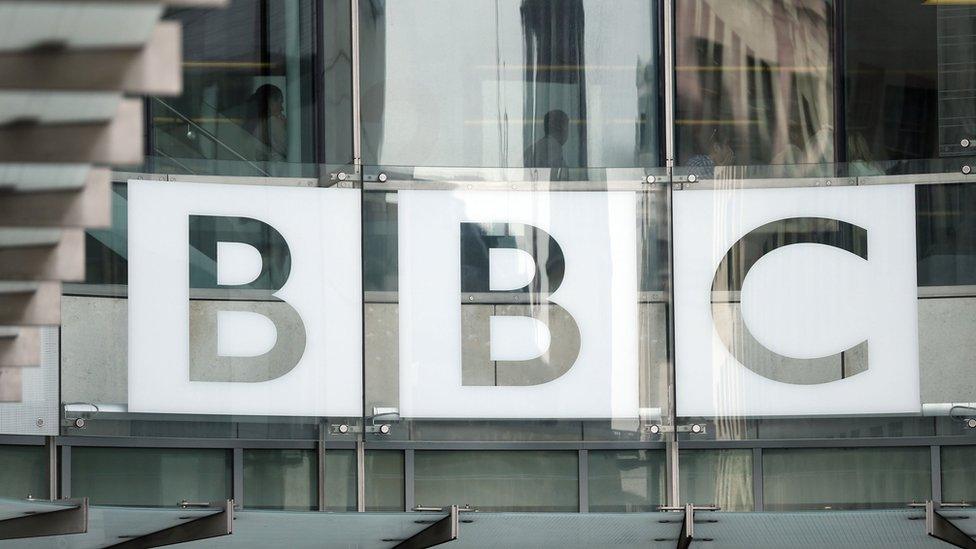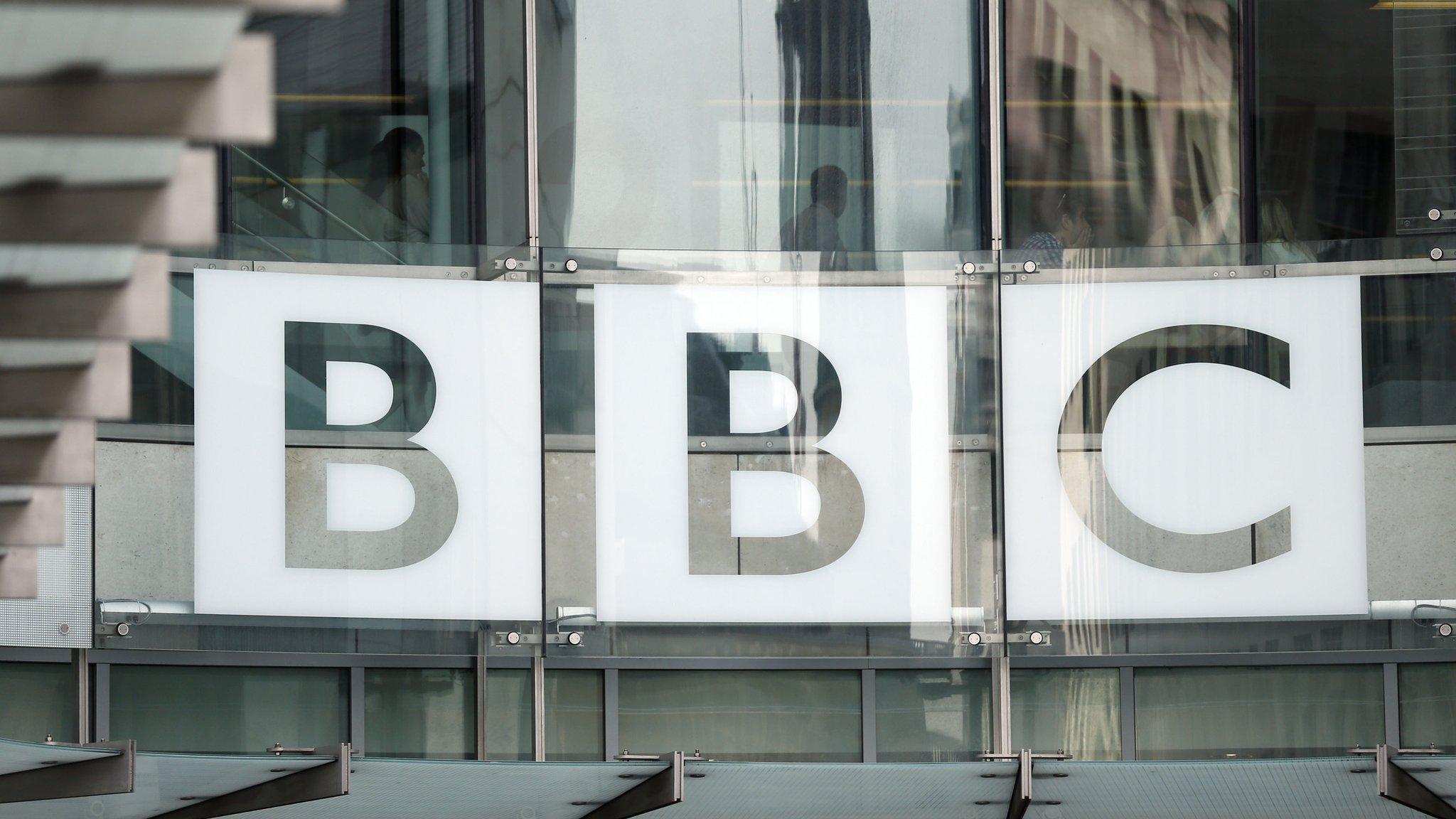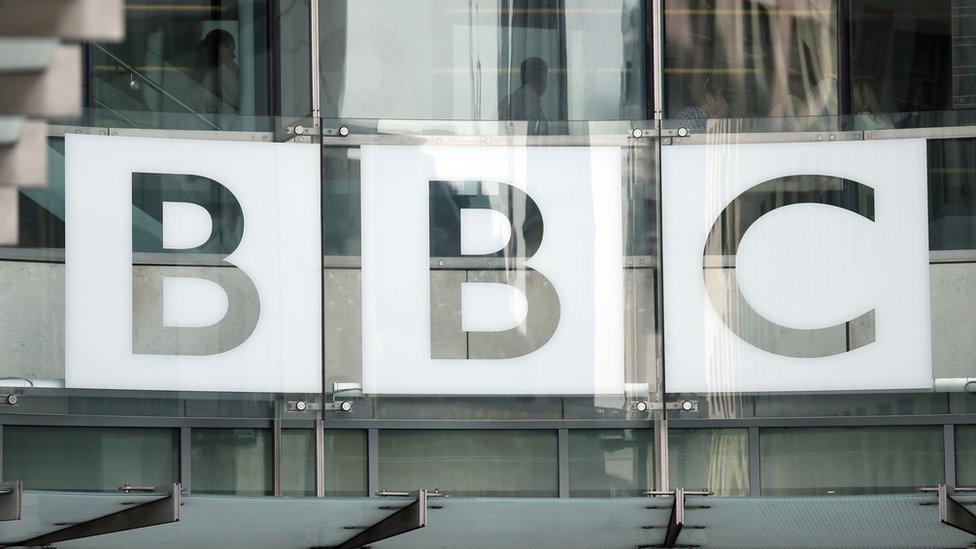BBC to quiz recruits on family background
- Published

Staff joining the BBC will be asked about their socio-economic background, as part of a bid to increase diversity at the corporation.
Candidates will be asked if they were entitled to free school meals, and if their parents attended university.
Anonymised job applications will also be extended for core roles.
The plans come after the BBC faced pressure from ministers to increase numbers of staff from under-represented backgrounds.
A BBC spokesperson said: "Almost half of our workforce is made up of women and the proportion of our workforce who are black, Asian and other ethnic minority is at an all-time high."
"We'll continue doing what works but also develop new and innovative ideas to do even better, and we'll set this out in...our new diversity strategy today."
A 2014 government report found that more than a quarter of senior BBC staff had attended public school.
The new diversity strategy includes:
Recording socio-economic information from all new employees for the first time, if submitted voluntarily, including whether they went to state or private school, and if they are the first in their family to attend university.
Extending anonymised applications for the recruitment of all core roles - effectively removing candidates' names and the universities they went to.
Increasing the number of apprentices from all backgrounds, including making sure at least 10% of apprenticeship places are taken up by people with disabilities.
Providing pre-application training to potential staff from under-represented groups, including guidance on preparing CVs and interview techniques.
Ensuring interview panels are diverse.
A BBC source added: "If we're going to serve audiences even better and be the creative powerhouse for the UK at home and abroad, we need the best people working for us and a workforce that reflects the many communities that exist in the UK - that's what these plans will ensure."
The diversity strategy is part of an industry-wide initiative and has been signed up to by the BBC, ITV, Channel 4 and Channel 5.
BBC director general Tony Hall said he wanted "to work ever more closely with others, using our influence to bring about real change".
"That's why we've been collaborating with all the broadcasters to introduce a new monitoring system which will allow us, for the first time, to measure how we're performing when it comes to diverse talent on and off screen.
"The BBC belongs to everyone and, because of that, we have a particular responsibility to represent as many voices and views as possible," he concluded.
The news follows last week's pledge by the BBC that by 2020 women will make up half of the workforce on screen, on air and in leadership roles.
At present, 48.4% of BBC employees are women, with women in 41.3% of leadership roles.

The BBC's bid to increase diversity using this strategy is not unusual, according to employment expert Nick Elwell-Sutton, from law firm Clyde & Co.
"We are very much seeing a move towards blind CVs - so they are stripped of any information that may identify where someone went to school and they are invited to interview on the core information of their application," he says.
The strategy is still in the minority, he says, but larger businesses that have the resources to do so are employing it.
For example, PricewaterhouseCoopers said last year it would stop using A-level grades in its selection process to allow for a "fairer" system.
It is also about increasing the talent pool, Mr Elwell-Sutton says.
If you just recruit from a graduate pool, for example, you miss out those who wouldn't consider going to university, he says.
But at the moment, he says it is difficult to tell if the strategy is working.
- Published23 April 2016

- Published28 April 2016

- Published1 March 2016
